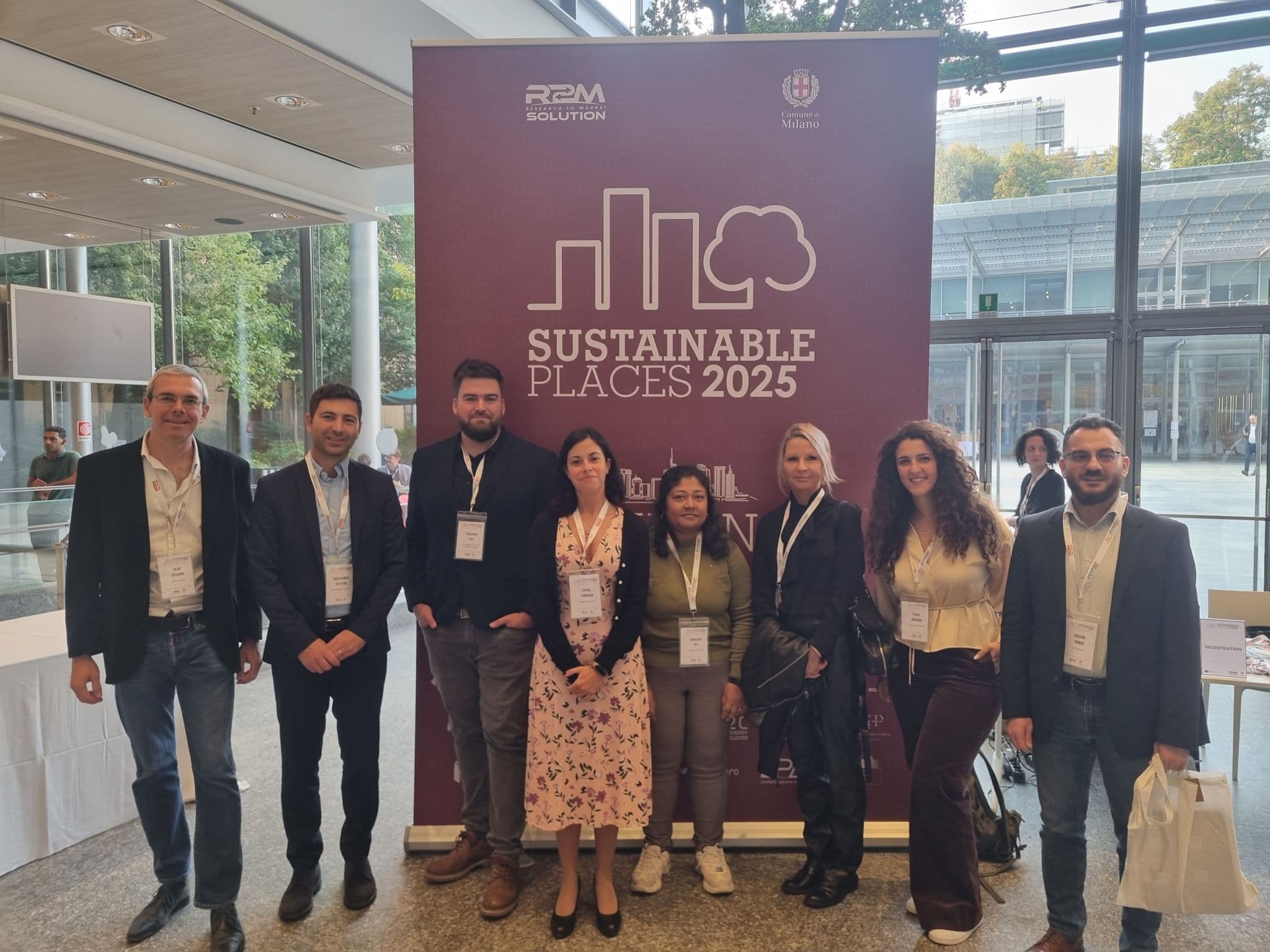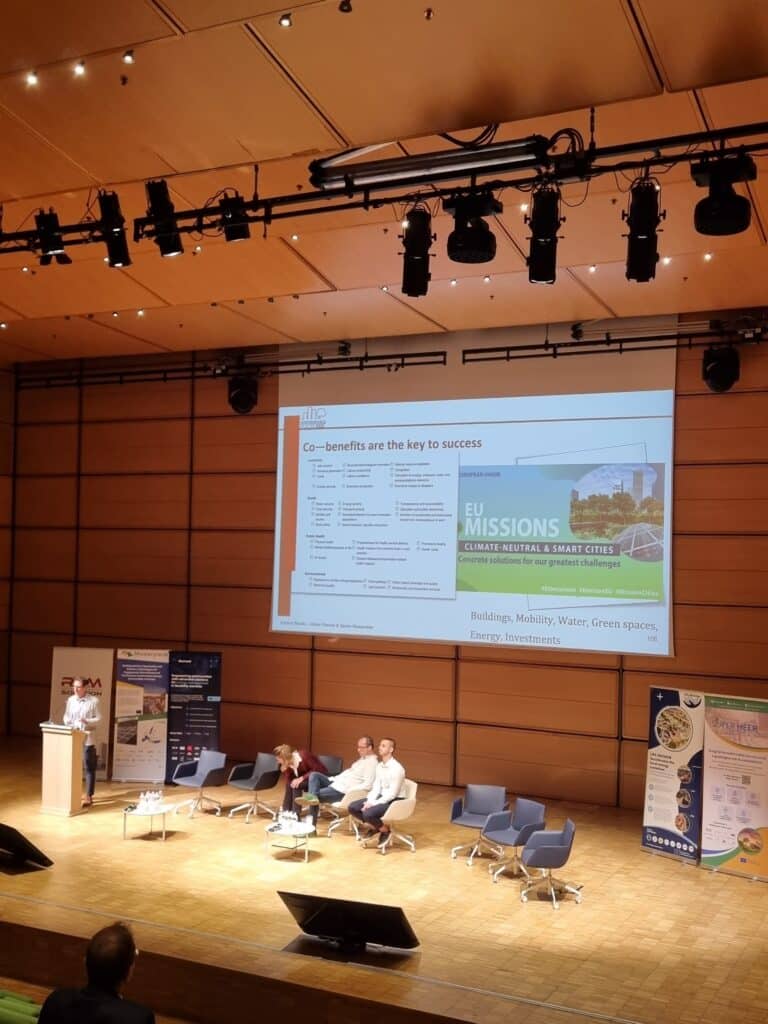6G4Society at Sustainable Places 2025: Advancing Sustainable and Ethical 6G Futures
6G4Society was proud to contribute to Sustainable Places 2025, one of Europe’s flagship conferences on the green and digital transition.
Hosted this year in Milan, the event brought together voices from research, policy, and industry to explore how innovation can power climate-neutral, inclusive, and resilient cities and communities.
As a Horizon Europe project dedicated to shaping a sustainable and human-centred 6G future, 6G4Society contributed to key discussions on digital sustainability, citizen engagement, and the evolution of next-generation communication networks.
This workshop continued the dialogue initiated at Sustainable Places 2024 on integrating environmental considerations into next-generation mobile networks. Building on the momentum of the first edition and the jointly published open letter “Towards Sustainable 6G” in Open Research Europe, this session brought together both returning and newly funded EU projects under the SNS JU and Horizon frameworks to showcase recent progress in energy-efficient 6G architectures, renewable energy integration, sustainable hardware, and life cycle assessment methodologies.
Read more about our contribution to last year’s edition.
Towards Sustainable 6G

At the session titled “Towards Sustainable 6G – Part II: Progress and Perspectives from R&I Projects on Greener Network Futures,” 6G4Society was represented by Flavia Maragno, Sustainability and Communication Specialist at Digital for Planet.
The workshop brought together key representatives from Smart Networks and Services Joint Undertaking (SNS JU) projects, 6G-TWIN, BeGREEN, CENTRIC, and 6Green, and alongside projects like COALESCE and IN2CCAM, to explore how environmental considerations can be seamlessly integrated into the development of 6G mobile networks.
Discussions centred on how next-generation connectivity can be developed to minimise environmental impact while maximising societal value, highlighting a shared commitment to sustainability among Europe’s leading research efforts.
The path toward sustainable 6G demands strong collaboration across research, industry, and policy. The SNS JU plays a central role in fostering this ecosystem, supporting innovation that ensures environmental goals are integrated from the outset.
Representing 6G4Society, Flavia Maragno contributed insights on the need to embed sustainability by design into every layer of the 6G system—from energy-efficient architectures and lifecycle assessments to human-in-the-loop approaches that prioritise inclusiveness, transparency, and citizen engagement.
The session reaffirmed 6G4Society’s belief that technological advancement must be ethically grounded and aligned with climate objectives and public interest, setting the course for a digital future that is not only faster, but also fairer and more responsible.
Further Insights from Sustainable Places 2025

In another highly relevant session — “Data Center, Digital Twin & AI for Sustainability” — the conversation turned to the intersection between digital infrastructure and environmental performance.
Discussions focused on how emerging technologies such as AI, predictive modelling, and digital twins are being used to optimise energy efficiency and reduce the carbon footprint of data centres and communication systems.
The session also addressed the importance of interoperability, regulation, and cross-sector collaboration to ensure that digital transformation contributes meaningfully to Europe’s climate goals.
These topics directly relate to 6G4Society’s work on Key Value Indicators (KVIs), a framework designed to incorporate societal values such as sustainability, transparency, and privacy into the development of 6G networks.
A recurring theme throughout the conference was the need to integrate social and ethical considerations into digital innovation.
Whether in the context of Positive Energy Districts, citizen-driven energy communities, or the future of communication systems, participants emphasised that technological performance alone is no longer sufficient.
Trust, accessibility, and long-term societal value must be considered from the earliest stages of design and development. For 6G4Society, this means working closely with stakeholders from beyond the engineering domain, including public authorities, community organisations, and citizens themselves, to shape technologies that serve the common good.
Shaping a 6G Future That Serves Society and the Planet
 Stay tuned for upcoming events and join the conversation via our Community Forum!
Stay tuned for upcoming events and join the conversation via our Community Forum!
